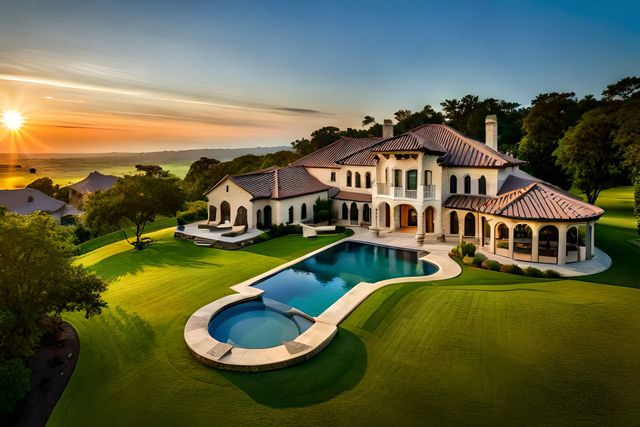From sprawling country manors to urban penthouse apartments, estates embody a spectrum of property ownership that reflects diverse lifestyles, aspirations, and investments. The concept of an estate extends far beyond mere physical structures; it encompasses legal, financial, and cultural dimensions that shape the way we live and interact with our surroundings. In this exploration, we delve into the multifaceted world of estates, shedding light on their significance and the intricacies that define them.
Defining Estates: Beyond Brick and Mortar
At its core, an estate represents the total assets owned by an individual or entity, including real estate properties, financial holdings, personal belongings, and more. However, the term often evokes images of grand residences set amidst picturesque landscapes, evoking notions of luxury, heritage, and prestige. While such properties indeed constitute a significant portion of estates, the concept is far more inclusive, encompassing a wide array of assets and arrangements.
Types of Estates: From Opulent Mansions to Suburban Homesteads
Estates come in various shapes and sizes, catering to the diverse needs and preferences of property owners. At the upper echelon are the grand estates, characterized by expansive grounds, lavish amenities, and architectural splendor. These opulent properties often carry historical significance, boasting rich legacies that add to their allure.
Moving down the spectrum, we encounter suburban estates, which comprise upscale homes nestled within well-appointed communities. These properties offer a blend of comfort, privacy, and convenience, catering to discerning homeowners seeking a balance between tranquility and accessibility.
Beyond residential estates, there exist commercial and industrial estates, comprising office buildings, retail centers, manufacturing facilities, and more. These properties serve as hubs of economic activity, driving commerce, innovation, and employment within their respective domains.
Legal and Financial Considerations: Navigating the Complexities
The ownership and management of estates entail a myriad of legal and financial considerations, requiring careful planning and expertise to navigate effectively. Estate planning, for instance, involves the formulation of strategies to manage assets, minimize taxes, and facilitate the transfer of wealth to future generations.
Additionally, the legal framework governing estates varies across jurisdictions, encompassing property laws, inheritance regulations, and taxation policies. Estate owners must stay abreast of these regulations to ensure compliance and safeguard their interests.
From a financial standpoint, estates represent substantial investments that require diligent management to preserve and enhance their value over time. This entails considerations such as property maintenance, asset diversification, and risk mitigation strategies tailored to the unique characteristics of each estate.
Cultural Significance: Heritage, Identity, and Legacy
Beyond their practical and financial dimensions, estates hold profound cultural significance, serving as embodiments of heritage, identity, and legacy. Many grand estates are steeped in history, with roots tracing back generations, reflecting the traditions, values, and aspirations of their owners.
Moreover, estates often serve as venues for social gatherings, philanthropic endeavors, and cultural events, fostering connections within communities and contributing to the fabric of society. Whether through art collections, architectural landmarks, or sprawling gardens, estates leave indelible marks on the cultural landscape, shaping narratives and inspiring imagination.
Conclusion: Embracing the Diversity of Estates
In conclusion, estates encompass a rich tapestry of assets, aspirations, and legacies that transcend mere property ownership. From majestic mansions to bustling commercial hubs, each estate tells a unique story, reflecting the values, ambitions, and identities of its owners. By understanding the multifaceted nature of estates and the complexities that define them, we gain insight into the diverse realms of property ownership and the enduring significance they hold in our lives and communities.

